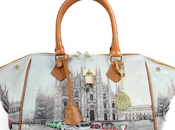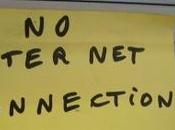 Vi ho già detto mille volte che ho partecipato alla giornata conclusiva di Open Sport alla Triennale di Milano, vero? E vi ho anche già esposto il mio breve report sulle cose più importanti che si sono dette durante il dibattito. Siete contenti? Spero di sì. Parteciparvi è stato un bel momento di crescita personale, ma anche un momento per maturare delle personali opinioni. Eccole.*
Vi ho già detto mille volte che ho partecipato alla giornata conclusiva di Open Sport alla Triennale di Milano, vero? E vi ho anche già esposto il mio breve report sulle cose più importanti che si sono dette durante il dibattito. Siete contenti? Spero di sì. Parteciparvi è stato un bel momento di crescita personale, ma anche un momento per maturare delle personali opinioni. Eccole.*
La mia idea. Credo che la ricerca continua dei contenuti di qualità sia un topos che si ripete storicamente e ciclicamente, anche quando non accadono “gap” tecnologici come la nascita di un nuovo media, di un capovolgimento virtuale della piramide della comunicazione o di un nuovo social network – la mente corre subito a Pinterest, citato ripetutamente anche durante l’evento assieme a (e in contrasto con) i vari Facebook, Twitter etc.
Questa ricerca della qualità, in un periodo di crisi economica come quello che viviamo oggi, non dovrebbe essere un appello, ma un principio scontato alla base di tutto il resto.
Inoltre, sono sicura – come ho detto anche a Marco Pastonesi poi – che la lettura digitale troverà presto un posto anche per i prodotti giornalistici che in questo momento non trovano spazio nella scrittura digitale. Se è vero che gli e-book non sostituiranno mai del tutto la carta stampata, è anche vero che i nuovi media non sono ancora maturi per un certo tipo di scrittura – come quella emozionante e riflessiva di Pastonesi, che per ora trova la sua massima e più sublime espressione solo sulla carta.
Per quanto riguarda invece la diatriba tra media tradizionali e nuovi media, credo che sia un falso problema. Dopo qualsiasi ‘boom’, la situazione ritrova fisiologicamente il suo giusto equilibrio. E instaura un rapporto circolare, come diceva Federico Buffa.
Lo strumento di per sé non va condannato, quanto ha senso “condannare” e “giudicare” chi ne fa uso, e come lo fa. É quindi imprescindibile il focus sullo user – l’utente – la cui autorevolezza e capacità comunicativa è conseguente all’uso che fa dello strumento. Ho detto un’ovvietà, forse?
Come ha detto Daniela Scalia in chiusura dell’evento, le Olimpiadi di Londra 2012 saranno il banco di prova di questo complicato e criticato sistema dei nuovi media, e del loro uso nella comunicazione sportiva. Sono completamente d’accordo con il pensiero di Daniela, ma aggiungo una piccola considerazione personale: Londra 2012 sarà per i nuovi media anche un rito di passaggio. E anche in questo caso, sono certa che avrà ragione il buon Charles Darwin.
*Se qualcosa non vi torna sintatticamente, calcolate che le ho scritte sul treno di ritorno a casa, come quelle che avete trovato nella parte 1 del report, e le ho volute lasciare inalterate per non perdere quel senso di “autentico” che solo Joyce si poteva permettere. Ma lasciatemi essere un po’ più presuntuosa del solito, almeno oggi.
–
I’ve told you a thousand times that I attended the final day of Open Sport events at the Milan Triennale Expo, right? And I have also already explained my short report about the most important things that were said during the debate. Are you happy? I hope so. Participating has been a nice moment of personal growth, but also a time to give a shape of some personal opinions. Here they are.*
My idea. I believe that continuous research of quality content is a topos that recurs cyclically and historically, even when any technologic “gap” does happen as the birth of a new media, a virtual reversal of the pyramid of communication or a new social network - the mind turns immediately to Pinterest, cited again and again at the event along (and in contrast) with the various Facebook, Twitter etc.
This quest for quality, at a time of economic crisis like the one we are living by now, should not be an appeal, but a guaranteed principle underlying all the rest.
Also, I’m sure – as I said to Marco Pastonesi later – that the digital reading (or e-reading, whatever you want to call it) will soon find a place for the journalistic products which currently have no space in the digital writing. While e-books will never replace the printed paper altogether, it is also true that new media are not yet ready for a certain kind of writing – like the Pastonesi’s exciting and reflective way, which for now has its maximum and most sublime expression only on paper.
As for the debate between traditional media and new media, I think it is a false problem. After any ‘boom’, the situation finds its physiological balance. It creates a circular relationship, such as Federico Buffa said.
The instrument itself should not be condemned, while it makes sense to “condemn” and “judge” those who use it, and how they do that. It is therefore essential to focus on the user whose authority and ability to communicate is a result that have been subject the use of the instrument. Do I said the obvious, perhaps?
As Daniela Scalia said at the end of the event, the London 2012 Olympics will be a testing ground of this complicated and criticized system of new media and their use in sport communication. I totally agree with Daniela’s point, but I would like to add a little personal consideration: London 2012 will be – for new media – also a rite of passage. And again, I’m sure that the good old Charles Darwin will have his good reason.
* If there is something that syntactically doesn’t add up, please note that I wrote it on the train while going back home, like what you found in part 1 of the report. I wanted to leave them intact as not to lose that sense of “authentic” that only Joyce could afford. But let me be a little more pretentious than usual, at least today :)
Ti potrebbe interessare anche questo! / Posts you might be interested in
- Open Sport – il mio report parte 1 / Open Sport – my report pt1
- Open Sport alla Triennale, ci sono anche io! /Open Sport at Triennale Expo, I will be there too!
- Open, lo sport alla Triennale di Milano / Open, sport at Milan Triennale Expo
- Giochi Olimpici di Londra 2012, è tutta una questione di soldi / Olympic Games London 2012, it’s all about money
- This is rugby (in Facebook opinion)!






